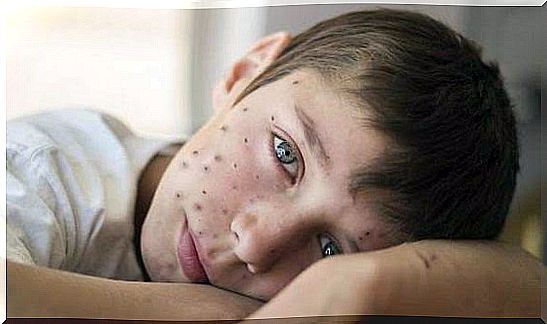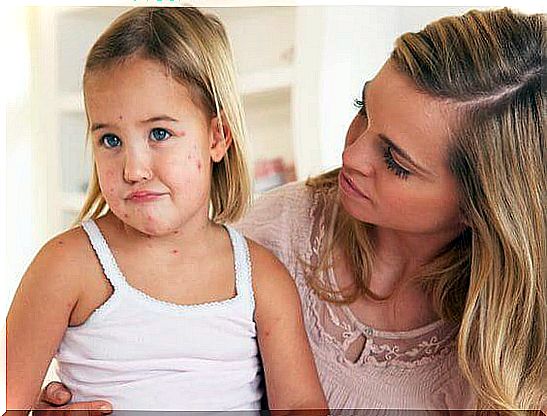Know Everything About Chickenpox

Chickenpox is a highly contagious disease. Most people suffer from it during childhood, since it is very common for one child to infect another. It can also be the case in adults and adolescents, the appearance of complications being easier.
The chickenpox virus belongs to the herpesvirus family, which also causes shingles. Although it usually occurs in young children, anyone is at risk of suffering from it. The most normal thing is for this condition to appear between 2 and 9 years of age.
The vaccine that protects against this disease should be given between 12 and 15 months of age and receive a subsequent booster between 4 and 6 years to be fully protected. This is usually given in a single dose and is generally well tolerated.
Unfortunately, being vaccinated does not fully relieve the risk of chickenpox. However, if it were to be the case, it would manifest itself in a very mild way and with less aggressive symptoms.
Once immunized, it is almost impossible for chickenpox to recur in the same person. Over the years, similar characteristics may appear, but this is due to the aforementioned shingles. This disease, although similar, has different clinical manifestations and treatments.

The doctor is the person indicated to diagnose cases of chickenpox through clinical observation. It is important to go to the consultation, since many skin lesions can be confused with other pathologies.
Chickenpox symptoms
A child infected with chickenpox has a number of symptoms. Most are easily recognizable, although there may be other less common ones. Some of the best known are the following:
- Red rash mostly reflected on the face, mouth, back, legs, and arms.
- Blisters (which eventually become scabs).
- Broken, even producing fever.
- Inflammation of lesions.
- Abdominal pain.
- Throat pain.
- Pruritus.
How is chickenpox spread?
This virus can be contracted by anyone, both adults and children. Still, there are easier ways than others to get infected, and they all include physical or environmental contact. First, chickenpox can be spread by spreading a chickenpox blister. It can also be easily contracted, it is spread in the environment, in this sense, it can be spread either by salivary contact or by breathing in the sneeze of the infected person.
Treatment for chickenpox is focused on relieving local symptoms. It is a disease in which most of the discomfort is related to skin lesions and their healing.
The use of antivirals is used at the discretion of the doctor, and often occurs in the first days of symptoms. Subsequently, its effect diminishes.

recommendations
It is essential to take into account a series of recommendations to deal with childhood chickenpox. Even being milder than that of adults, its symptoms are still quite annoying. So the best option is to follow these steps:
- Keep children at rest and away from others who have not had the disease.
- Do not let the scabs come off, as they can leave deep scars.
- Bathe them constantly with warm water to keep them cool.
- Do not expose them to the sun and avoid places with hot or very cold climates.
- They should not play or go to school until the blisters are gone.
- It is essential to ingest as much liquid as possible.
- Apply refreshing and moisturizing creams (teach them to avoid scratching the affected areas).
- They should always wear loose and cool clothing.
Although chickenpox is not a chronic disease, it is very uncomfortable for children (as well as painful due to burning and itching) , and it takes considerable time to heal, as well as a good deal of patience.
Staying with them and giving them love and affection is very important, especially if they have to be isolated. If they are old enough, it is recommended that the situation be explained to them. This will make it much easier for them to remain calm.










